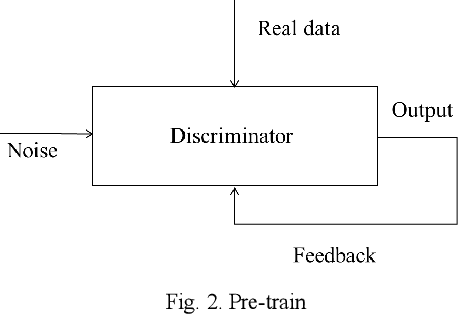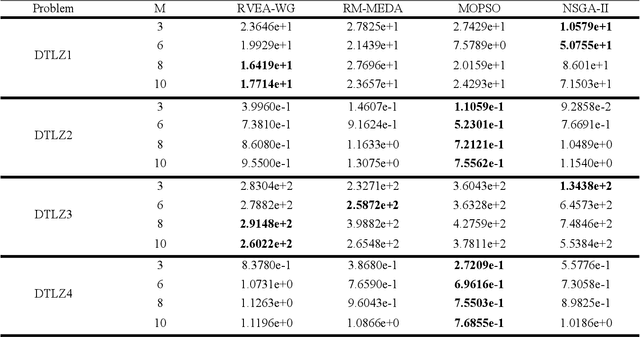Many-Objective Estimation of Distribution Optimization Algorithm Based on WGAN-GP
Paper and Code
Mar 16, 2020

Estimation of distribution algorithms (EDA) are stochastic optimization algorithms. EDA establishes a probability model to describe the distribution of solution from the perspective of population macroscopically by statistical learning method, and then randomly samples the probability model to generate a new population. EDA can better solve multi-objective optimal problems (MOPs). However, the performance of EDA decreases in solving many-objective optimal problems (MaOPs), which contains more than three objectives. Reference Vector Guided Evolutionary Algorithm (RVEA), based on the EDA framework, can better solve MaOPs. In our paper, we use the framework of RVEA. However, we generate the new population by Wasserstein Generative Adversarial Networks-Gradient Penalty (WGAN-GP) instead of using crossover and mutation. WGAN-GP have advantages of fast convergence, good stability and high sample quality. WGAN-GP learn the mapping relationship from standard normal distribution to given data set distribution based on a given data set subject to the same distribution. It can quickly generate populations with high diversity and good convergence. To measure the performance, RM-MEDA, MOPSO and NSGA-II are selected to perform comparison experiments over DTLZ and LSMOP test suites with 3-, 5-, 8-, 10- and 15-objective.
 Add to Chrome
Add to Chrome Add to Firefox
Add to Firefox Add to Edge
Add to Edge